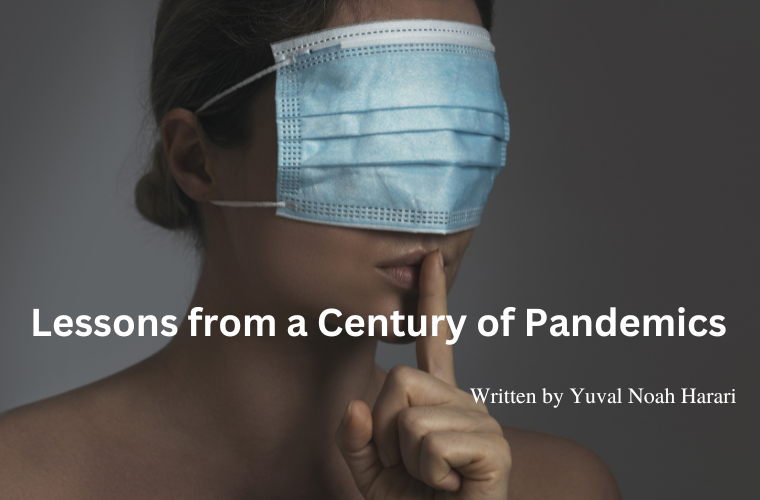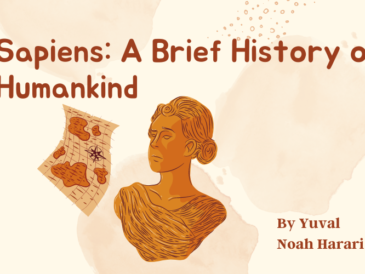About Author
Yuval Noah Harari is a well-known historian and author Lessons from a Century of Pandemics. Whose work has gained worldwide recognition for. Its insights into the history of humanity and the challenges we face in the modern world. Harari was born in Israel in 1976 and received his PhD in history from the University of Oxford in 2002.
He is a professor of history at the Hebrew University of Jerusalem and has published several best-selling books, including “Sapiens: A Brief History of Humankind” and “Homo Deus: A Brief History of Tomorrow”. Lessons from a Century of Pandemics
Harari’s books have been praised for their accessibility and ability to distill complex ideas into clear and engaging prose. His work spans a wide range of topics, from the history of human evolution to the future of technology and artificial intelligence. Harari is known for his interdisciplinary approach, drawing on insights from fields. Such as history, biology, psychology, and philosophy to explore the big questions facing humanity.
In addition to his work as an author and historian, Harari is a frequent commentator on current events and the role of technology in society. He has been recognized as one of the world’s most influential thinkers by publications such as Time magazine and The Guardian
The History of Pandemics: What Can We Learn from the Past?”
As the world grapples with COVID-19, it’s natural to wonder how past pandemics have played out and what we can learn from them. By studying the history of pandemics, we can gain insights into how diseases spread, how societies respond, and what interventions have been effective in the past.
One of the most well-known pandemics in history is the Spanish Flu of 1918-1919, which killed an estimated 50 million people worldwide. Studying the response to this pandemic can provide valuable lessons for how we handle current and future outbreaks. Lessons from a Century of Pandemics
By examining the ways in which pandemics have impacted societies throughout history, we can gain a better understanding of how to prepare for and respond to pandemics in the future. From public health measures to economic policies, the lessons of history can help us make better decisions and minimize the impact of future outbreaks.
“The Global Response to Pandemics: Successes and Failures”
Pandemics are a global issue, requiring coordinated responses from governments, healthcare organizations, and individuals around the world. In the past century, there have been numerous pandemics, including the H1N1 influenza pandemic in 2009 and the ongoing COVID-19 pandemic, which have highlighted both successes and failures in the global response to outbreaks.
One of the key successes in the global response to pandemics has been the development of vaccines. Vaccines have been instrumental in controlling the spread of diseases such as smallpox and polio, and have played a critical role in the response to COVID-19. Lessons from a Century of Pandemics
However, the global response to pandemics has also had its failures. In some cases, there has been a lack of cooperation between countries, leading to the spread of disease across borders. In other cases, there has been misinformation and distrust, which has hampered efforts to control outbreaks.
Despite these challenges, there have been many examples of successful global responses to pandemics. For example, the response to the Ebola outbreak in West Africa in 2014-2016 involved cooperation between multiple countries and organizations, leading to the development of effective treatments and vaccines.
By examining the successes and failures of the global response to pandemics. We can identify areas for improvement and better prepare for future outbreaks. Through international cooperation, investment in research and development. A commitment to evidence-based public health policies. We can work together to mitigate the impact of pandemics on global health and well-being.
“Understanding the Science of Pandemics: How Viruses Spread and Mutate”
To effectively respond to pandemics, it’s important to have a solid understanding of the science behind how viruses spread and mutate. This knowledge can help inform public health policies and interventions aimed at controlling the spread of disease.
One of the key factors in the spread of pandemics is how easily a virus can be transmitted from person to person. For example, COVID-19 is highly contagious and can be spread through respiratory droplets when an infected person talks, coughs, or sneezes. By contrast, diseases such as HIV are not easily transmitted through casual contact.
Another important factor in pandemics is how viruses mutate over time. When a virus replicates, it can sometimes make errors in its genetic code, leading to mutations. Some mutations may be harmless, but others can make the virus more transmissible, more virulent, or more resistant to treatments.
By studying the science of pandemics. We can develop better tools for tracking the spread of disease and predicting the course of outbreaks. For example, mathematical models can be used to simulate. How a disease might spread under different conditions, helping public health officials make decisions about interventions such as lockdowns and social distancing.
Additionally, advances in genetic sequencing technology have made it possible to rapidly identify new strains of viruses and track their spread. This can be especially important in the early stages of a pandemic, when little is known about the disease.
Overall, understanding the science of pandemics is critical for effective pandemic preparedness and response. By investing in research and technology, we can continue to improve our understanding. How pandemics work and develop better tools for controlling their spread.
The Socioeconomic Impacts of Pandemics
not only impact global health but can also have significant socioeconomic consequences. The economic toll of pandemics can be felt for years or even decades after the initial outbreak. Therefore, it’s important to consider the socioeconomic impacts of pandemics and develop strategies for mitigating their consequences.
One of the most immediate impacts of pandemics is on healthcare systems. Which can become overwhelmed by the influx of patients. This can lead to shortages of medical supplies and staff, as well as delays in care for non-pandemic related illnesses.
Pandemics can also have significant impacts on businesses and the economy as a whole. For example, during the COVID-19 pandemic, many businesses were forced to close, leading to widespread job losses and economic hardship. Additionally, supply chain disruptions and travel restrictions can impact trade and investment, leading to long-term economic consequences.
In order to mitigate the socioeconomic impacts of pandemics. It’s important to develop policies and interventions that can support individuals and businesses during times of crisis. This may include measures such as economic stimulus packages, unemployment benefits, and support for small businesses.
Additionally, it’s important to prioritize equity and ensure that vulnerable populations are not disproportionately impacted by pandemics. This may include providing support for low-income individuals and families, as well as investing in healthcare infrastructure in underserved areas.
By considering the socioeconomic impacts of pandemics and developing targeted interventions. We can work towards minimizing the long-term consequences of outbreaks and building more resilient societies.





